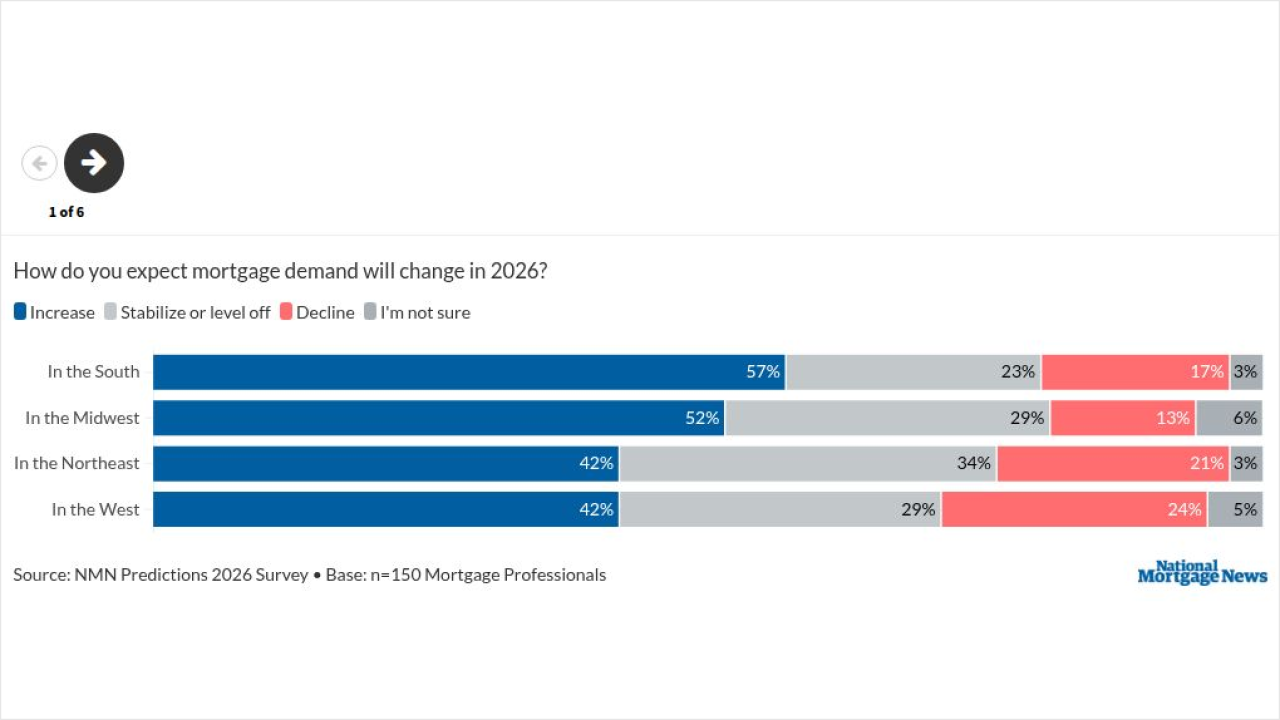Recent forecasts of ongoing
After recording a
“Mortgage rates are volatile as economic growth slows due to fiscal and monetary drags,” Freddie Mac Chief Economist Sam Khater said in a press release.

A better-than-expected
“Even with this increase in inflation, markets remain volatile as investors try to balance Fed rate increases with recession risk,” Thomas said in a research statement.
Investors are closely watching for signals from central-bank officials, with the Federal Open Market Committee scheduled to meet at the end of July, for signals about what appropriate monetary policy might look like based on the developments.
For many active in the mortgage and
And vectors are pointing to additional increases in the months ahead, Fleming said. “One headwind for the Fed’s fight against inflation — shelter inflation is delayed up to six to 12 months. Rapid growth in rent expense over the last year is only now beginning to hit the headline CPI figure, which means there’s more upward pressure to come.”
Meanwhile, economic releases in the next several days looking at jobless claims and retail sales could also influence the direction of mortgage rates in the short term.
Alongside the 30-year rate jump, the 15-year average experienced a similar large spike, rising 22 basis points to 4.67% from 4.45% one week earlier. In the same seven-day period in 2021, the 15-year fixed mortgage averaged 2.22%.
The 5-year Treasury-indexed hybrid adjustable rate also came in higher, climbing to 4.35% from 4.19% the prior week. One year ago, the 5-year ARM averaged 2.47%.




